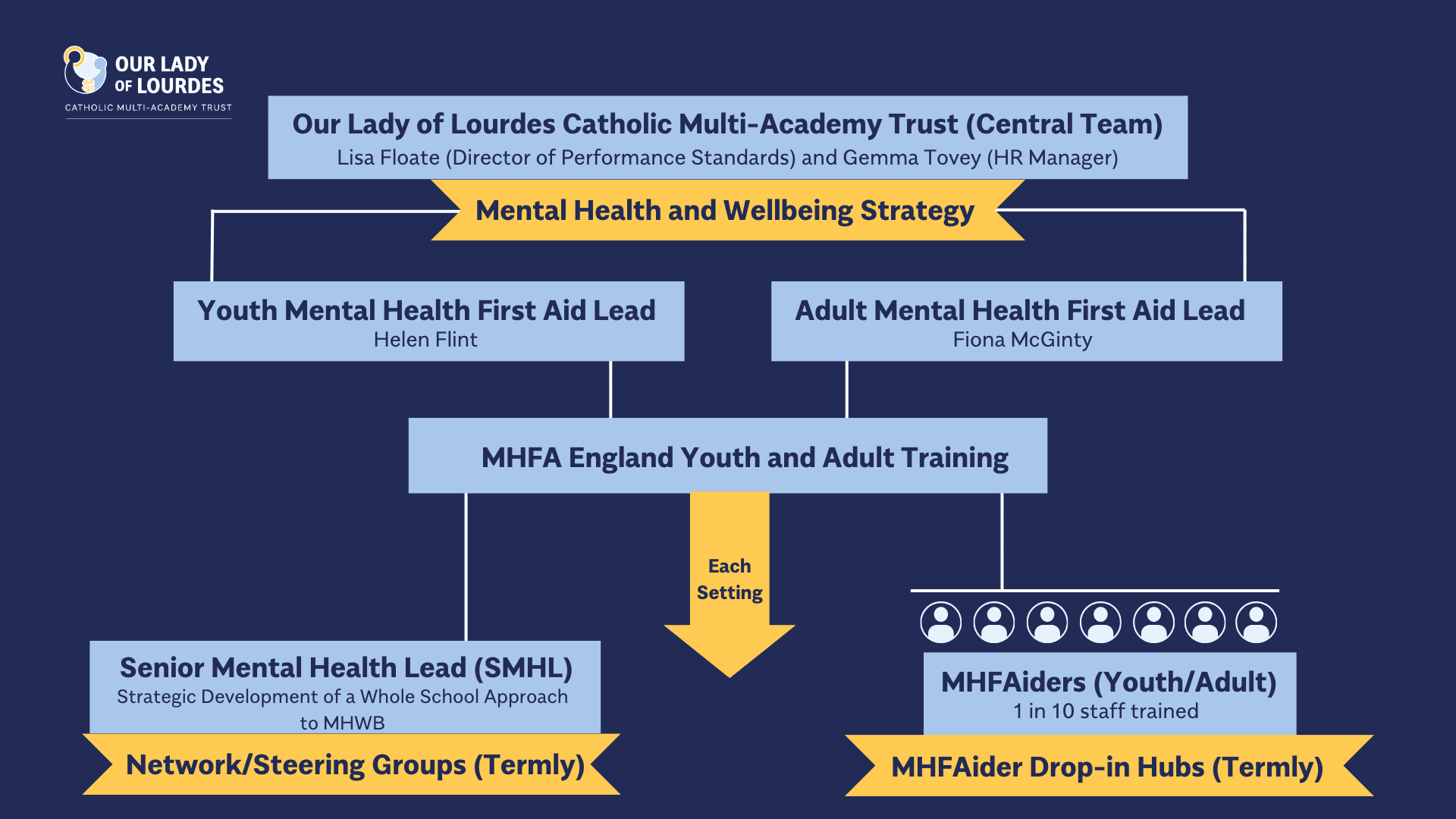Our Vision
At Our Lady of Lourdes CMAT, we are committed to fostering a thriving community where mental health and wellbeing are integral to our mission of enabling all to fulfil their God-given potential. As a partnership of Catholic schools, we strive to provide the very best Catholic education for all in our community, improving life chances through spiritual, academic, and social development.
By placing the person and teachings of Jesus Christ at the centre of all that we do, we nurture everyone in a spirit of compassion, service, and healing, following the example of Our Lady of Lourdes. Together, we work to ensure that every member of our Trust—students, staff, and families—feels valued, supported, and empowered to flourish. Through our collective efforts, we seek to make the world a better place, especially for the most vulnerable in our society, by doing ‘little things with great love,’ as taught by St Thérèse of Lisieux.
We are guided by the following 8 principles, as set out by Mental Health First Aid England, to ensure a whole-school approach is adopted to promote mental health and wellbeing.
- Leadership and Management – Our leaders actively champion mental health and wellbeing, embedding this into all aspects of our Trust’s vision and practices, ensuring it remains a priority for all.
- An Ethos and Environment – We cultivate a culture that values respect, diversity, and inclusivity, creating spaces where all feel safe, accepted, and supported.
- Curriculum, Teaching, and Learning – We integrate resilience-building, social and emotional learning, and wellbeing education into our curriculum to equip students with the skills they need to navigate life’s challenges.
- Enabling Student Voice – We empower students to influence decisions that impact their wellbeing, fostering a sense of agency and belonging.
- Staff Development – We support our staff’s professional and personal wellbeing, recognising their vital role in nurturing a healthy, supportive community.
- Identifying Needs and Monitoring Impact – We adopt evidence-based approaches to identify needs, monitor progress, and ensure that interventions make a meaningful difference.
- Working with Parents and Carers – We collaborate closely with families to build a strong, shared network of care and support for our students.
- Targeted Support and Referral – We provide accessible, tailored interventions and referrals to ensure timely help for those in need.
Rooted in these commitments, we aim to create a Trust-wide culture where mental health and wellbeing are seen as shared responsibilities. By working together, we ensure that all members of our community can achieve their full potential, deepen their faith, and realise their God-given talents. In doing so, we continue to shape a compassionate, resilient community where everyone has the opportunity to flourish and live life to the full.
“Good mental health is a state of well-being in which every individual realises his or her own potential, can cope with the normal stresses of life, can work productively and fruitfully, and is able to make a contribution to her or his community.”
World Health Organisation
Pope Francis also highlights the significance of supporting those facing mental health challenges. He has stated, “Let us pray that people who suffer from depression or burnout will find support and a light that opens them up to life.” This call to action reminds us of our responsibility to accompany and support one another, especially those experiencing mental health difficulties.


